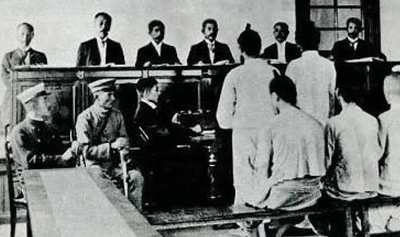- Dokdo in the East Sea
- Dokdo in History
- Dokdo is Korean Territory
Dokdo in the East Sea
Table of Contents Open Contents
- Dokdo is Korean Territory
-
Ⅰ. Roots of Territorial Claims to Dokdo
- 1. Korean Territorial Claims Proven by Japanese Historical Sources
- 2. Korean Territorial Claims Proven by Korean Historical Sources
- 3. The Japanese government’s claim that it established territorial rights over Dokdo in the mid-seventeenth century is a fabrication.
- 4. The Highest Decision-making Office in Japan’s Meiji Government Decides that Dokdo and Ulleung are Part of Korean Territory
- Ⅱ. On the declaration of territorial rights over Dokdo by the Korean government and the illegality of the island’s annexation in 1905 to Shimane Prefecture
- Ⅲ. Korea’s Territorial Rights to Dokdo Seen from Measures Taken by the Allied Powers after World War II
- Ⅳ. Korea’s Territorial Claims on Dokdo after the San Francisco Peace Treaty
- Ⅴ. Korea’s Territorial Rights over Dokdo Seen from International Law
3. Legal and Ethical Responsibility for Japan’s Colonial Past and Its Understanding in Terms of International Law
There are no legal precedents as of yet to settle territorial disputes between a colonized country and a colonizing one, which makes the problem between Korea and Japan all the more difficult to resolve. This also makes the Dokdo issue quite different from the territorial disputes involving the Kuril Islands and the Senkaku Islands. The Dokdo issue also is distinct from the disputes currently pending at the International Court of Justice.
The Japanese government is endeavoring to limit the Dokdo dispute narrowly within the boundary of legality, rather than seeing it as an issue bearing numerous historical implications. That is because if this matter is treated as a historical issue, Japan would be in a difficult position because the government has denied its territorial rights to Dokdo on three different occasions in its own official documents and the island has always been a part of Korea historically. That is why the Japanese government is attempting to see this matter not as a historical issue. In contrast, the Korean government considers this matter both as historical and territorial in nature. Dokdo has historically been Korea’s inherent territory for centuries, a fact that has been made clear in numerous extant documents and books. The island was the first victim of the imperialist onslaught that began in 1905. It is imperative for the Japanese government to face historical facts and abandon the territorial ambitions to Dokdo pursued since 1905 through manipulating international law.










